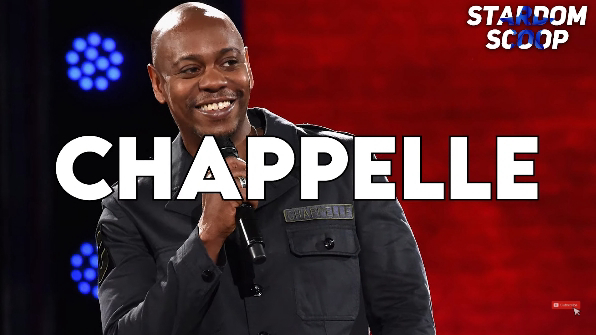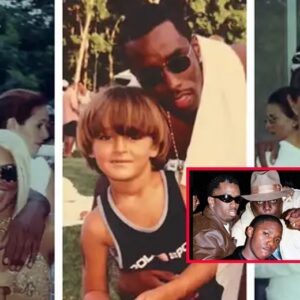The Truth Behind the Feud: Oprah Winfrey and Tyler Perry Face Backlash (VIDEO BELOW)
A recent video has sparked a significant debate surrounding Oprah Winfrey and Tyler Perry, portraying them as alleged scammers in Hollywood. It all began when comedian Monique made public revelations about her disappointment with Oprah, whom she claims deliberately tried to sabotage her career. Many now believe that Oprah and Tyler Perry were involved in a scheme to undermine and discredit Black actors.

Comedian Katt Williams has emerged as an outspoken critic of these Hollywood giants, openly calling out Oprah and Tyler Perry for their actions. Williams has been vocal in his criticism, alleging:
- Both Oprah and Tyler Perry are members of the Illuminati.
- They are fighting against the Illuminati but end up hurting themselves.
- The media dislikes them, and they have few true supporters.
- Oprah is a narcissist.
- Tyler Perry lacks an independent voice and conforms to others’ opinions.
- Both use their power to silence those who disagree with them.
- They exploit Black actors for their own financial gain.
Williams has also warned fellow comedian Dave Chappelle about the risks of speaking out against Oprah and Perry, suggesting that those who do are likely to face media backlash and public disdain.
Fans of Oprah and Tyler Perry are now reassessing their views of the two celebrities, suggesting that these icons should no longer be regarded as untouchable. Rumors of Oprah’s narcissistic tendencies have been circulating for years, but Monique’s recent remarks demanding an apology from Oprah have brought these rumors into sharper focus. Fans have started to delve into Oprah’s past actions, uncovering a history of questionable behavior and an avoidance of accountability backed by influential figures in Hollywood.

The Monique vs. Oprah Saga
If you’re unfamiliar with the feud between Monique and Oprah, let me fill you in. The drama dates back to 2009, when Monique refused to take part in a promotional tour for the film “Precious.” The film was co-produced by Oprah and Tyler Perry, who were keen to capitalize on Monique’s newfound fame after her Oscar nomination by having her promote the movie—without paying her for her time and efforts.
Exhausted from the emotionally draining role in “Precious,” Monique prioritized her family over the promotional tour. Initially, Oprah remained silent, and Monique believed there were no hard feelings between them. However, Oprah later told Monique that she owed her an apology. Monique revealed that she and Oprah had previously shared a private conversation about her strained relationship with her mother, yet Oprah invited Monique’s parents to her show without informing her—a move Monique found deeply hurtful.

Monique’s Career Plummets
Weeks later, tabloids began publishing stories painting Monique as difficult and uncooperative, despite her Oscar win for her role in “Precious.” Opportunities began to vanish, with promising deals abruptly canceled. Monique realized her career was being systematically targeted—a truth she candidly shared in a recent interview with The Hollywood Reporter. In that interview, Monique revealed that “Precious” director Lee Daniels admitted that she had been blacklisted in Hollywood. Moreover, Monique called for a public apology from Oprah and Tyler Perry.

Oprah’s Exploitation of Monique’s Past
The promotional tour dispute was just one instance of Oprah’s questionable treatment of Monique. The exploitation of Monique’s painful past stands out as a particularly disturbing example. From ages 7 to 11, Monique endured abuse from her brother Gerald. When Monique refused Oprah and Perry’s request to promote the film, Oprah invited Gerald onto her show to discuss the abuse without Monique’s consent.
Monique’s difficult relationship with her parents—who ignored the abuse—was something she had confided in Oprah, and Oprah used that information for her show without giving Monique any warning. The betrayal left Monique feeling deeply let down by Oprah, particularly since Oprah’s original conversation with Monique had centered solely on Gerald, with no mention of involving Monique’s entire family.
Oprah’s Pattern of Behavior
Oprah’s betrayal of Monique isn’t an isolated incident. She has a troubling pattern of befriending stars under false pretenses to extract personal information, using it for her show’s ratings. Celebrities like 50 Cent have publicly criticized Oprah for her deceit. 50 Cent once compared Oprah to an Oreo cookie—Black on the outside but culturally disconnected on the inside—after she reprimanded him for his explicit lyrics, accusing rappers like him of promoting negativity. In response, 50 Cent argued that Oprah, who originally represented the voice of Black women, had transformed into someone catering mainly to middle-aged white American women, losing touch with her roots.
Rapper Ludacris also found himself in a similar situation with Oprah, leading him to question her intentions and motivations.
Hollywood’s Attempt to Suppress Dave Chappelle
Katt Williams also raised a concerning warning for Dave Chappelle, alleging that Hollywood elites were trying to silence him following his recent remarks. In his latest Netflix special, “The Dreamer,” which was released on December 31, Chappelle doubled down on controversial jokes about transgender individuals despite backlash for similar comments made during his 2021 stand-up.
In one particularly memorable moment from the special, Chappelle shared a story about meeting Jim Carrey on the set of “Man on the Moon” in 1999, where Carrey adopted a method acting approach to embody the real-life comedian Andy Kaufman, staying in character throughout filming. When Chappelle met Carrey after filming, the crew requested that he refer to Carrey as “Andy.”





